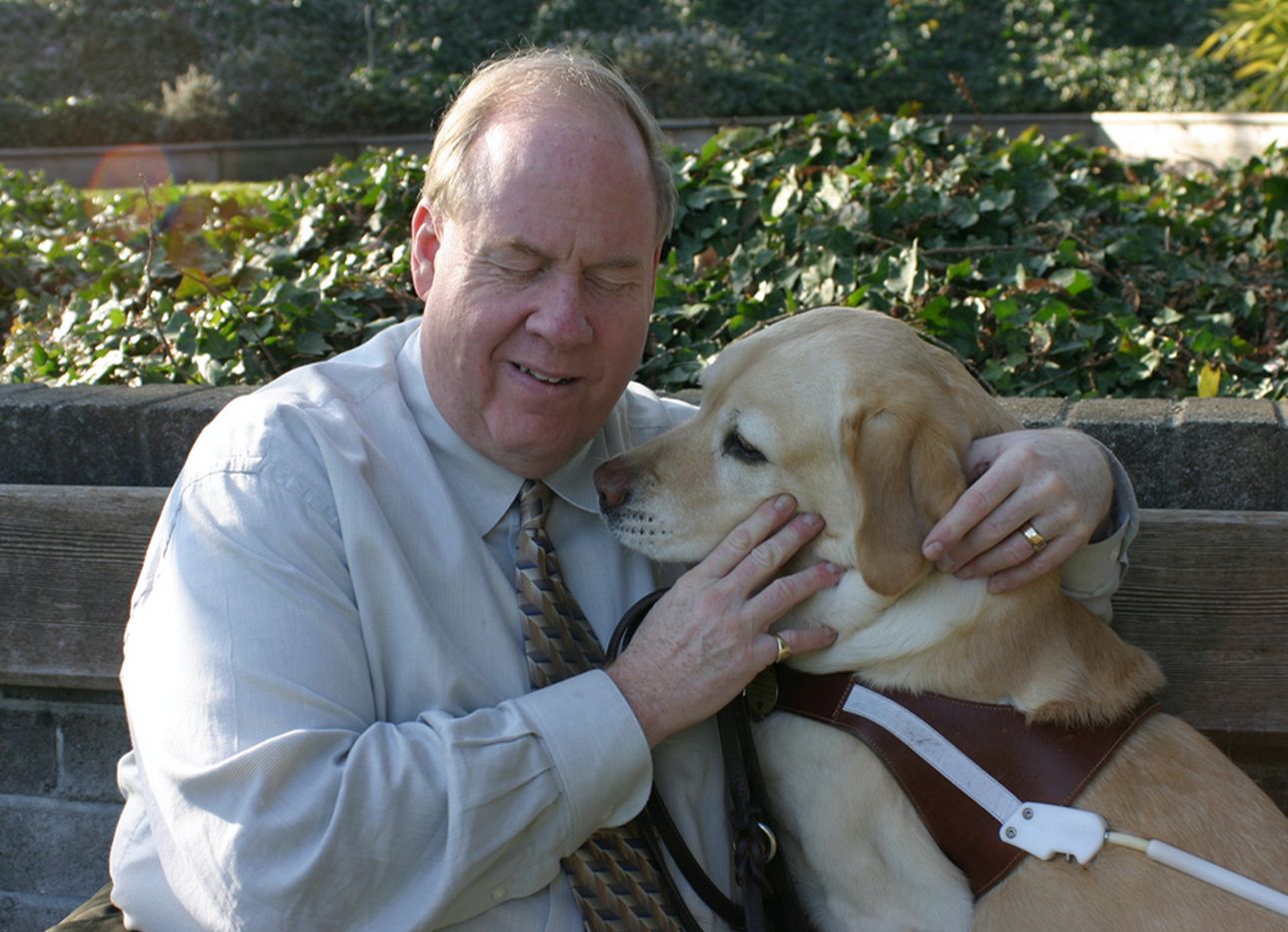
How Scent Helped This Blind 9/11 Survivor Escape Tower One
Michael Hingson was in his office at the data-protection agency Quantum on the 78th floor of the World Trade Center’s Tower One when he felt and heard the thud of the first airplane hitting the building, 15 floors above. Hingson, who has been blind since birth due to an eye disorder called retinopathy of prematurity, realized the crash had also roused his guide dog, a yellow Labrador named Roselle, who had been asleep under his desk. As the structure tilted, the longtime Californian took shelter in a door frame until it became clear that the shaking was no earthquake.
Over the course of the next hour, Roselle led Hingson down nearly 1,500 steps, and they exited the building just before Tower Two collapsed. Days later, the two made their first of five appearances on the Larry King Show, followed by a flood of other media requests. The unexpected interest in his experience prompted Hingson to focus his time on sharing his approach to life with others. Now an accomplished author and public speaker, Hingson teaches the sensory-based skills he’s been developing since receiving his first guide dog at age 14—trust, teamwork, and adaptation—at universities, corporations, and nonprofits around the world. Here, he describes the role that scent played in his escape from the tower, and the valuable information that can be learned by engaging all of our senses.
“I could never have imagined what the terrorists carried out on 9/11, but I had long been preparing for any emergency by learning my way around the World Trade Center without relying on signs by talking to officials at the Port Authority, the local police [station], and fire departments.
I teach that we don’t need to be blinded by fear; we need to plan for it, and to choose how to deal with it by preparing our minds. I’d created a preparedness mindset that kicked in that morning. Sighted people tend to focus on their eyesight, when in fact we should and can learn to use all of our senses. Anyone can learn to smell better, for example. Think of [Navy] SEAL teams or gourmet chefs. They succeed by optimizing and activating every one of their senses to their advantage, which is what I did that morning.
After the first plane hit, I heard rustling outside. But Roselle was not reacting, which was information as valuable as anything [my coworker] David [Frank] was shouting. Dogs have an enhanced sense of smell, and guide dogs are trained to respond to fire, but Roselle was conveying to me that we were not in imminent danger. I felt less panicked than those around me because I could rely on her. We were a team working together.
In the stairwell, I smelled the burning jet fuel, but the air flowed normally because the fire was high above us. Each of these details represented a piece of information, and the more of that, the better.
At the fiftieth floor, David said, ‘We’re going to die.’ This prompted me to send him down ahead of us, and to ask him to [yell out] what he was seeing. That data was available to everyone in the stairwell. So out of his fear, David gave thousands of people this helpful information. When we finally made it outside, ash filled the air, but there were no real odors. We were walking west, on Fulton Street, when Tower One collapsed.
We humans need to learn how to do a better job of observing what goes on around us, and to use our sensory toolbox more than we do, and to [collaborate using] that information, like David did so well going down those stairs. I feel disappointed that, as a nation, we still haven’t learned that lesson from 9/11. Instead, America is so divided, with politicians continually refusing to work together as a team. Sadly, it’s the terrorists who exhibited the potential of teamwork that day.
I like to remind people that the definition of ‘see’ is actually ‘to perceive.’ I have conditioned my brain to do so over many years. Our senses are like languages. It just takes practice to smell the nuances around you.”